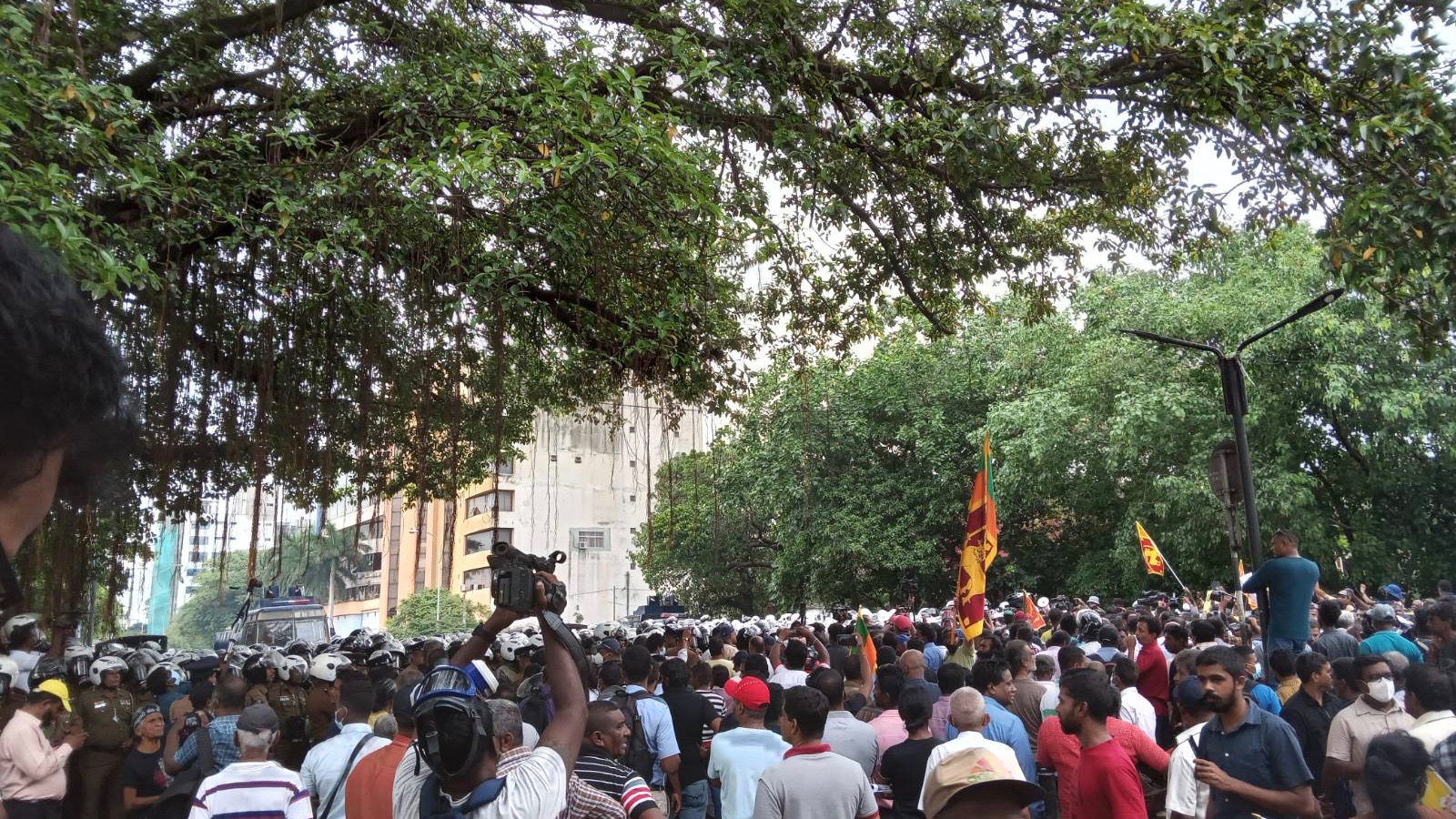On Wednesday, November 2, opposition parties, unions, and civil society activists in Sri Lanka jointly organized a protest march followed by an anti-government rally in capital Colombo to protest against the current policies of the Ranil Wickremesinghe-led government.
Protesters marched through the streets of the national capital raising concerns about the increased repression of dissenting voices under the current regime which came to power in July this year following a wave of mass anti-government agitations. The protestors also raised concerns over the persistent shortage of essentials and the economic crisis in the island. Many protestors were seen holding placards demanding the release of student activist Wasantha Mudalige and others held in arbitrary detention under the Prevention to Terrorism Act (PTA).
NOW: Members of trade unions, student groups & political parties are amassing in #Colombo as more crowds are expected to join the massive protest march getting ready to set off shortly, calling an end to #SriLanka's state crackdown on dissent. pic.twitter.com/XVRgj96oey
— JDS (@JDSLanka) November 2, 2022
The protest was organized by a number of political parties, including the Samagi Jana Balawegaya (SJB) and Sri Lanka Freedom Party (SLFP), along with student organizations and trade unions like the Ceylon Trade Union (CTU). CTU General Secretary Joseph Stalin addressed the crowd saying, the protest was only the first step in a larger people’s struggle,” reported The Morning.lk:
Police prevent protestors from marching towards the Fort Railway Station.#lka #SriLanka #SLnews #News1st #Police #Protest #ProtestLK #Suppression #Colombo pic.twitter.com/7WbCa1mc5c
— Newsfirst.lk Sri Lanka (@NewsfirstSL) November 2, 2022
The protestors were blocked at several points along their route by more than 500 police, army, and security officers who were deployed around the area with water cannon trucks. According to local media, the leader of the opposition from the SJB, Sajith Premadasa, also joined the protest march.
Heavy police presence in Colombo ahead of protests
Details: https://t.co/CM5vWt9sFx#lka #SriLanka #SLnews #News1st #Police #ProtestLK #Security pic.twitter.com/kqEnG7m5BT
— Newsfirst.lk Sri Lanka (@NewsfirstSL) November 2, 2022
Today’s protest saw more security officials on standby than the protesters itself.
Seen below are #SriLanka’s STF officials stationed at a roundabout in #Colombo #lka #srilankaprotests pic.twitter.com/sVo4dXyM9x
— Dasuni Athauda (@AthaudaDasuni) November 2, 2022
The day before the march, on November 1, Sri Lankan police had issued a letter alerting numerous protest groups, including students, trade unions, and political organizations, that permission will not be granted to protest opposite the Fort Railway Station, the site where the protest was to culminate, citing traffic congestion and disruption of traffic flow.





